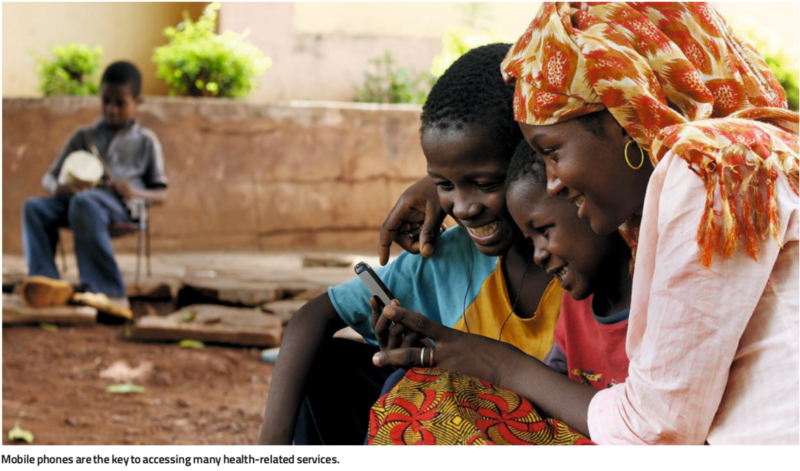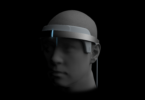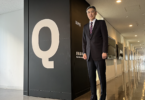Years ago Dr. Vena Arielle Ahouansou watched a young mother-to-be die during childbirth because the woman couldn’t remember her blood type. By the time the information was retrieved it was too late to save her.
The experience spurred her to create KEA Medicals Pharmaceutics and Technologies, a Benin-based startup that uses cutting-edge technology to store and transfer basic medical information that can be accessed in times of emergency.
People can register themselves via their mobile phones, providing key data such as blood type, allergies, whether they have a chronic disease and who to contact if there is a medical crisis. The information is placed onto a QR code that can be integrated into a bracelet or on a patch that can be added to a watch, mobile phone or personal jewelry. If someone passes out on the street, hemorrhages while giving birth or is hit by a car, for example, not just doctors but anyone nearby can help by easily scanning the information with their mobile phones.
The bracelets cost $4 and the patches sell for $2. They need to be renewed once a year. After a strong start in Benin the one-and-a-half-year-old company has expanded its operations to Cote d’Ivoire, Gambon, Senegal and Tunisia.
“We have a chance in Africa because we have a high level of mobile technology penetration and we are leveraging that to bring value added services to the population,” says Ahouansou, a Lauréate of the Prix Projet Afrique Future In Africa and an alumnus of the Women In Africa Entrepreneurship Program. “This technology can be of use by everyone, everywhere. The market is there. Our ambition is to scale up outside of Africa and implement this solution in Europe and the US.”
KEA Medicals is not stopping there. The next step is to use blockchain, a digital ledger technology, that promises to ensure transparency and traceability, and artificial intelligence to help hospitals and doctor’s offices digitize medical records. These records, which could contain sensitive health information, are the property of the patient and can only be accessed with patients’ permission, through the use of pin codes assigned to doctors. KEA is also working on a digital system for hospital management so administrators they know what is happening in real time.
Using Technology To Leapfrog Ahead
If it succeeds patients, doctors and hospitals in Africa could end up being the first to go completely digital, one more example of how the Continent is using technology to leapfrog ahead.
KEA Medicals is one of 10 African startups that French drug maker Sanofi selected to bring to VivaTechnology, a May 24–26 Paris tech conference that connects startups with big corporates.
Africa Challenges
The ten companies are finalists in the The Sanofi Africa Challenges which seeks to identify startups with innovative and adaptive solutions with the potential to disrupt Africa’s health sector. The challenges focus on multi-device and multi-channel solutions that can both educate and inform health professionals, solutions that can diagnose non-communicable diseases and telemedicine solutions with mobile payment options.
“The Continent has opportunities as well as challenges that are monumental,” says Jon Fairest, Sanofi’s head of Africa. “As a company that has been part of the healthcare system in Africa for decades we have to help. How can we create new medicines and make sure they are affordable, ensure that technology helps manage disease and efficiently free up funds for innovation?”

To that end Sanofi wants to connect with startups to see “how can we use technology to connect nurses, physicians and pharmacies to increase the level of understanding in the management of diseases,” says Fairest.
For example, Vula Mobile in South Africa, one of the 10 Sanofi Challenges finalists, offers a mobile phone application that aids rural health professionals in providing effective eye care by communicating directly with specialists over a messaging system. The aim is to reduce the impact of treatable and reversible illnesses.
These types of apps are even more crucial when it comes to the management of chronic diseases. “The next big health explosion is Westernized diseases, such as diabetes and cardio vascular diseases, as the population ages and middle class expands,” says Fairest. “Africa is a ticking time bomb for health — a lot of knowledge and expertise from the developing world can be adapted and used to support the health care system in these developing markets. The next step is around partnerships with government to come up with the best solutions to get as much reach as possible. Technology is going to be the corner stone of that process.”
Thanks to mobile technology it is now easy to get course material to medical personnel in remote areas. For example, South Africa’s Appenberg Digital Publishing is helping publishers of medical information make their content available on mobile apps. Its technology ensures the content is up-to-date, interactive and easy to read across a variety of devices. And Otrac, a Nigerian startup chosen as one of the ten by Sanofi, enables health workers to take courses and learn at their own pace on their mobile devices irrespective of their location, and earn a formal recognition for their achievements.
“What we are finding is where we can use programs to reach doctors in remote areas and start to educate them on disease management programs we can really improve patient lives in terms of early diagnosis and prevention,” says Fairest. “Some of the apps let you know where to go for information ,where there is a group of expertise whether it be in disease management or diagnosis or treatment. As these networks grow in numbers to tens of thousands it will possible to create a ready-made clinical database so we can measure outcomes in communities where these programs are being used.”
Real-World Solutions For Real-World Problems
Beyond education, African tech startups like KEA Medicals are bringing real-world solutions to real-world problems. In some cases telemedicine solutions are helping doctors in remote locations get second opinions to help with diagnosis of disease. And, startups are finding ways to bring the right medical equipment to the doors of people with chronic disease. Take the case of Medtrucks, another one of the 10 startups selected by Sanofi to come to VivaTechnology. It operates mobile medical units equipped with dialysis equipment that provide care for patients with kidney disease who live in remote areas.
In Morocco one-third of kidney disease patients do not have access to dialysis treatment. And many of those that do must travel great distance. Medtrucks is able to treat 30 kidney patients with a mobile truck equipped with five beds.
Sanofi is also interested in startups that can help everyone stay healthy by digitally connecting to doctors. GiftedMom, which uses text messages to help mothers and pregnant women in Cameroon access medical advice in rural communities, is one example.
Sanofi plans to continue working with three of the 10 startups it brought to Vivatechnology.
“These type of events are crucially important as a conduit to bring everyone around the table and shape the dialogue and take targeted approaches on specific topics for Africa — around Africa optics and challenges — and channel the right people, with the right dialogue at the right time,” says Fairest. “There are startups sitting with brilliant ideas and Vivatech gives them a forum where they can sit down with companies like Sanofi that can help make their vision happen.






